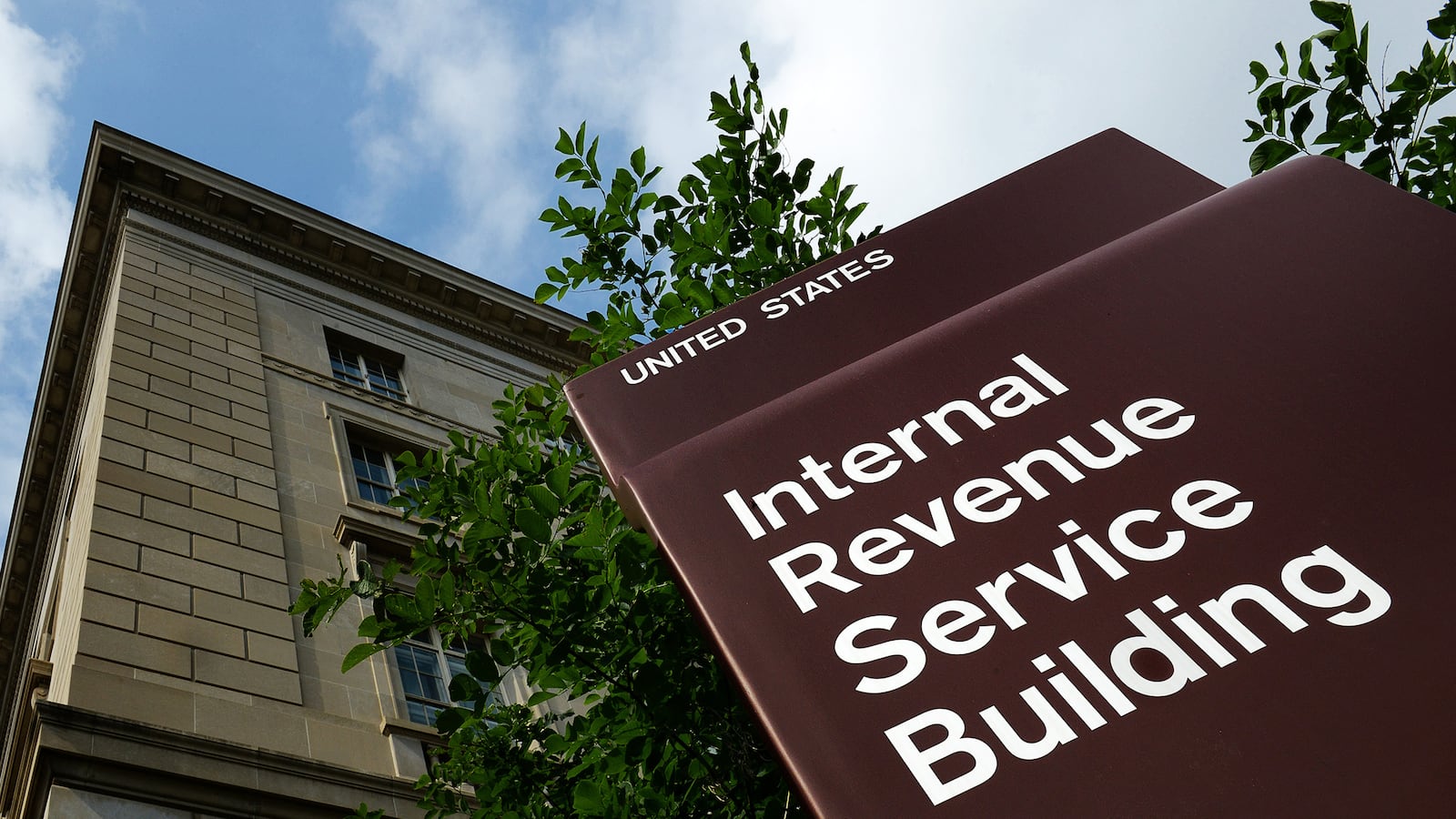Documents released Monday by Democrats on the House Ways and Means Committee reveal that in August 2010, the Internal Revenue Service ordered that applicants for tax-exempt status that were engaged in “Occupied Territory Advocacy” should be sent to the TAG, or “touch and go group,” for further evaluation.The heavily redacted documents, spreadsheets listing the IRS’s “BOLO,” or “be on the lookout,” criteria for screening tax-exempt applicants, were released as part of a Democratic effort to clarify that the IRS scrutinized progressive as well as conservative tax-exempt applicants, and that the Obama administration did not target groups based on ideology. The “Occupied Territory Advocacy” category appeared to be one of many categories designated under BOLO, which also included varied designations such as medical marijuana and health care reform advocacy.

Conservative groups have complained, since the IRS controversy broke, that the IRS discriminated against them based on their viewpoint and asked needlessly intrusive questions during their tax-exempt application process. But the agency is obligated under the law to inquire about an applicant's activities. The IRS can't infringe on free speech rights, but it must determine whether a group's activities qualify for tax-exempt status—which amounts to a taxpayer subsidy of its activities. And, under the law, tax-exempt organizations "may not have purposes or activities that are illegal or violate fundamental public policy." The TAG group was created in 2005, three years before Barack Obama was elected president. According to the agency’s Internal Revenue Manual, TAG’s purpose is to “identify cases handled by Exempt Organizations (EO) Determinations early in the process that may involve an abusive tax avoidance transaction, fraud, or terrorism.”
Some of the BOLO lists refer to an August 6, 2010, e-mail, also identified as “alert #1,” which required agents to refer “applications that deal with disputed territories in the Middle East” to the TAG group. “Examples may be organizations named or connected with [redacted] XXXX (XXXX=particular city).” After additional redacted language, the document continued, “Applications may be inflammatory, advocate a one-sided point of view, and promotional material may signify propaganda.”
The IRS declined to comment on what promoted the alert. A spokesperson for the agency said federal law prohibits it from “discussing or commenting on any particular taxpayer statement or case.” In a statement, the IRS said, “The investigations into why BOLO spreadsheets were created, how they were used, and why certain terms appear on them are ongoing and not yet complete.” The statement added that BOLO “is not in use today.”

The August 6, 2010, “alert #1” occurred approximately one month after a New York Times investigation found dozens of American-based organizations sent over $200 million in tax-deductible donations to pro-settlement groups. Frequently the American groups are called “American Friends of” a settlement city or organization, such as American Friends of Ateret Cohanim, a group that seeks to expel Palestinians from their East Jerusalem homes.
At the time, the Times piece drew criticism from settlement supporters, including from now-MK and Jewish Home party head Naftali Bennett. But immediately following the article’s publication, the liberal pro-Israel group J Street called on the Treasury Department and Congress to investigate whether American groups funding settlement activities in the West Bank violated the law.
Z Street, a right-wing Zionist organization which claims the IRS discriminated against it in reviewing its tax-exempt application, jumped on Monday’s revelation. Its co-founder, Lori Lowenthal Marcus, called the new information the IRS’s “’smoking gun’ pointed to its own head.”
Z Street sued the IRS in 2010, claiming viewpoint discrimination in the processing of its tax-exempt application. It alleged an IRS agent told the group the government applied an “Israel Special Policy,” subjecting groups to greater scrutiny if their views on Israel were at odds with Obama administration views. In court papers, the IRS denies both that Z Street was told that and that such a policy exists.
Marcus said in an interview that she hadn’t heard the term “Occupied Territory Advocacy” used before Monday “but that doesn’t meant they [the IRS] don’t have” a policy that Marcus says amounts to viewpoint discrimination.
The manager of the IRS’s TAG group, Jon Waddell, said in a sworn affidavit in the Z Street litigation that he determined that Z Street’s application should be referred to the TAG group because its application indicated it “could be providing resources to organizations within Israel or facilitating the provision of resources to organizations within the state of Israel” and that “Israel is one of many Middle Eastern countries that “have a ‘higher risk of terrorism.’”
Waddell also said in the affidavit that a TAG referral “is appropriate whenever an application mentions providing resources to organizations in a country with a higher risk of terrorism.” He added that the referral “does not indicate that the organization supports terrorism, only that further development is necessary to ensure that the organization will put procedures in place to prevent resources from being used to support terrorism.”
The agency’s Internal Revenue Manual requires that “specialists working on a case shall initiate a Potential Terrorist Connection check sheet” to determine if any of a number of facts are in place, including if “the organization will engage in foreign grants or activities.”
The Times piece was not the first to highlight the issue of US tax-exempt groups funding settlement activity. In March 2009, the Washington Post’s David Ignatius wrote a column questioning why, given U.S. policy against settlement expansion, American taxpayers are essentially subsidizing it through tax-exempt donations funneled through American non-profits. A few months later, filmmaker and human rights activist Ronit Avni argued that while American non-profits shouldn’t lose their tax exempt status for supporting settlement activity, perhaps the Treasury Department’s Office of Foreign Assets Control should step in to regulate their foreign donations.
As part of a description of its activities provided by request to the IRS, Z Street noted, among other things, how it generated activist support for the New York Mets after the team was criticized for allowing the Hebron Fund—a group supporting the West Bank settlement discussed by both Ignatius and Avni—to host a fundraiser at Citi Field in November 2009. “[L]et’s show that we won’t be intimidated and let’s go to the event affirming our ties to and support for Hebron,” Marcus wrote to supporters. “By standing with the Hebron Fund you are standing with the Jewish Community and with Israel.” She urged activists to write a letter thanking the Mets “for rejecting the hate-monger organizations’ request to cancel” the fundraiser.
Marcus said it was “pretty scary” that the IRS could scrutinize groups for engaging in activities such as urging supporters to write letters to the New York Mets.
Z Street’s tax-exempt application is stalled while it litigates its case against the IRS. A hearing on the government’s motion to dismiss the complaint is scheduled for July 19 in federal court in Washington, D.C.






